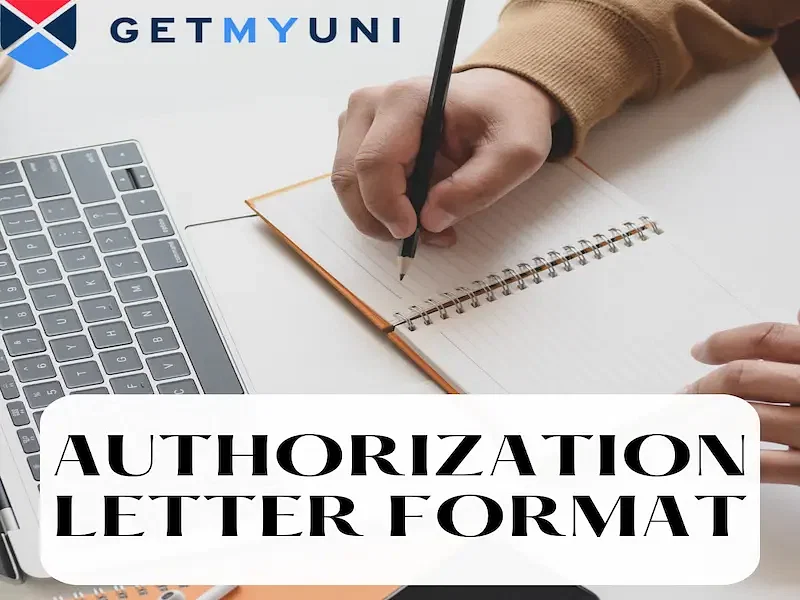FCA full form is Fellow Chartered Accountant, represented as the CA with more than five years of experience. To be an FCA, an accountant must be CFA certified.
Table of Contents
Chartered accountancy is one of the most popular accountancy courses recognized worldwide. Annually, around 3 Lakh aspirants apply for each level of CA examination across the country. CA terminologies are unique and sometimes confuse aspirants. CA aspirants are posting several queries, and one such popular question asked is "What is FCA in CA ?".
In simple terms, FCA is a Fellow Chartered Accountant. It is a designation awarded to a Chartered Accountant. Once a candidate completes his CA, the applicant is called Associate Chartered Accountant. FCA is intended to designate those who have achieved a higher level of professional experience. Fellow Chartered Accountant (FCA) is not to be confused with Associate Chartered Accountant(ACA) as they both are members of ICAI(Indian Council of Chartered Accountancy) at different levels. A Fellow Chartered Accountant is the one who holds a certificate of practice for more than five years, where an ACA holds practice for less than five years.
These are the main differences between the two types of chartered accountants. The responsibilities of both ACA and FCA are similar, and so is the voting rights of both ACAs and FCAs. Still, only Fellow Chartered Accountants can get elected to the ICAI's Council and Regional Councils. It is usually so as they have higher experience in their field of work and more knowledge and expertise.
FCA Full form
The full form of FCA is a Fellow Chartered Accountant. FCA is given to graduates who have cleared CA final exam along with considerable work experience in the accountancy field. The main purpose of setting FCA is to act as a financial regulatory body in the country but operates independently of the government.
FCA is the second level of membership given to chartered accountants after ACA. FCA is generally given to people who have 5+ years of experience in government or reputed organizations. IN general, FCA's have greater advantages than ACA's as they can enter into the ICAI council and have a good market for audits due to their experience in accounting.
FCA Courses
To become a successful fellow chartered accountant, students need to complete the chartered accountant course offered by ICAI or the chartered financial analyst courses provided by the CFA Institute. The CA course includes the field of studies under accountancy and taxation along with fundamental financial management. A CA course consists of three examination levels, upon completion which graduates are ready for practical work as chartered accountants.
On the other hand, the CFA includes the study of financial management, investment management, economics, accounting, corporate finance, and equity investment. Students who want to get CFA certification must complete the three levels of examination, i.e., level I, level II, and level III. The course and examination duration can be four years or 1.5 years, depending upon the candidate's calibre. Let's study more about FCA eligibility and CFA courses.
FCA Eligibility:
Like any other course or certification, FCA's also have some eligibility criteria required for the posing. Among the basic eligibility criteria is to clear CA or CFA examination and acquire practical experience in the field. Some of the major eligibility criteria include:
- Clear IPCC, CPT, and CA final exams with good aggregate scores and obtain ACA membership.
- For FCA, graduates should have five or more years of experience in commerce, accounting, taxation, and finance management.
- Another route is that graduates can clear all three levels of the CFA exam and should've relevant financial management experience.
- Like CA, CFA graduates should've at least five years of experience in finance management and accounting.
CFA Course:
CFA or Chartered Financial Analyst is one of the most prestigious certifications in finance and accounting. A CFA can fit into various roles and designations in finance and investment. In general, for an aspirant to get CFA certification, they need to qualify for three levels of the CFA exam. The CFA exam is governed by the CFA Institute, a global nonprofit organization that aims to promote & develop a high level of educational standard in financial & investment analysis.
The CFA exam consists of three levels: Level I, level II, and level III. All the level exams will be of increasing order of difficulty and require some training and rigorous practice. There are more than 167000 CFA Chartered worldwide across 164 countries. The demand for financial planning, management, and accounting has opened up numerous job opportunities and scopes for the graduates of CFA over the past few years.
CFA Eligibility
To register for the CFA program, the following is the eligibility:
- Students should have a bachelor's degree in commerce from a recognized college or Institute.
- Candidates who are in the final semester of their final year can also appear for the CFA course. However, aspirants must note that candidates must complete their bachelor course before registering for the CFA level 2 exam.
- Candidates with a minimum of 4 years of work experience and education are also eligible for CFA. Those students who are doing their internship will be under the work experienced category.
- While registering for the CFA exam, the candidates should have a valid passport.
CFA Admit Card
All the candidates must carry their CFA admit card to the exam centre and a valid id, unexpired passport for identification for the verification process.
CFA Institute issues admit cards to the candidates appearing for the CFA exam. Students can download admit cards online, and CFA doesn't send hard copies to the candidates.
CFA Exam Pattern
There are three levels of the Chartered Financial Analyst exam that one needs to qualify to get the designation of Chartered Financial Analyst or CFA Chartered. The exam pattern for different levels are given below :
CFA Level 1:
CFA level 1 exams are conducted under two sessions. FCA paper includes 240 multiple choice questions divided between the two sessions. The exam topics include ethical, professional standards, fixed Income derivatives, etc. Questions will be more from the concepts & tools that are applied to investment management and valuation purposes.
CFA Level 2 :
CFA level 2 exam also comprises 240 MCQ questions divided between the morning session & evening session under 3 hours for each session. The focus is given on the asset valuation, and the candidates will have to apply the concepts & tools they have learned in the level one CFA Exam.
CFA Level 3:
The exam pattern for level 3 is completely different from CFA level1 & level2. The two major types of questions are item set and constructed response in the form of essay, and the main focus is given to portfolio Management & wealth planning.
The morning session consists of essay questions that range from 8-12 questions in number with several subparts, with a maximum of180 points. The exam book will provide the point value on the exam day. There is a set of 10 item questions in the afternoon session.
CA Course:
FCA can be obtained using a CA certificate. CA or chartered accountancy is a combination of three examination levels that focus on accounting, taxation, and finance. CA was established in 1949 by ICAI (Indian Chartered Accountants Institute). A CA course consists of three levels: CA Foundation, CA Intermediate, and CA Final. The duration of a CA course generally ranges from 3 to 5 years and sometimes, even more, depending on students' learning speed and exam scores.
CA Foundation is entry-level coursework that offers a basic study of accountancy and its application in several fields. Students can take CA foundation exams to clear this level and advance for CA inter. CA Inter coursework offers more rigorous training on article training and practical training of accountancy. Upon completion of CA Inter, students can appear for CA final examination, which offers extensive training on taxation and accounting. FCA in CA can be obtained if graduates clear all the levels of CA.
CA Eligibility
Just like any other course, the CA course also has its eligibility criteria for admission. The basic requirement for pursuing CA is to have 50% in 10+2 commerce and accountancy groups and clear either CPT or IPCC. Some of the other eligibility criteria are given:
- Students should have cleared 10+2 exams in commerce or accounts groups with a minimum of 50% and should have passed the CPT exam.
- Upon completing the CPT exam, students are eligible for IPCC, for which they need to register nine months before the exam date.
- Students should clear CA base, foundation, and final exams with a good aggregate score to obtain CA.
- Students will be expected to acquire practical accountancy, tallying, taxation, and article training in between.
CA Exam Pattern
Just like CFA, CA consists majorly of 3 levels of examination or coursework. All the coursework and examination will be of increasing difficulty level. CA examinations and their pattern are given below:
CA Foundation:
The CA Foundation exam is the first level examination conducted by ICAI for ACA and FCA membership. The exam consists of four papers, namely, the principle of accounting, business law and correspondence, business mathematics, and business economics. Students can take the CA exam twice a year. The pattern consists of Objective type questions with no negative marking.
CA Intermediate:
Upon clearing CA Foundation, graduates can appear for CA Intermediate level. CA Inter is slightly harder than CA Foundation from an examination perspective. There are seven papers, and the weightage of questions asked is more from papers 2, 4,6, and 7. The exam consists of 100 MCQ questions with a duration of 3 hours to complete.
CA Final:
CA Final is the last level of examination for CA. Before appearing in CA Final, students must ensure that they have 2.5 years of experience in articleship and should've cleared CA Inter. The exam consists of 8 papers, each paper consisting of 100 marks. The questions in CA Final exam can be expected as a combination of subjective and objective type questions. Due to COVID-19, the examinations are conducted only via online mode.
Charted Financial Analyst vs. Chartered Accountancy
CFA and CA, both courses are excellent and are unique in their way. There is no significant difference between the two; it all depends on one's interest & investment they want to make.
Below are some key differences between the CFA and CA:
|
Parameters |
CFA |
CA |
|
Job profile |
Chartered Financial Analyst or CFA Chartered |
Chartered Accountant |
|
Conducting body |
Chartered Financial Analyst |
Chartered accountant |
|
Details |
CFA is a program that aims to provide regular training & education in the field of financial and also in investment analysis. The exam can only be cleared after three levels Level 1, level 2, and level 3. |
CA is a certified qualification in the field of commerce and accountancy that can be obtained after qualifying many rounds, CA Foundation, CA intermediate, and CA Final. |
|
Average time to qualify |
1.5-4 years |
4-5 years |
|
Global recognition |
Yes |
No |
|
Average Registration fees |
INR 1-2 Lakhs |
INR 1 lakh |
|
Average Salary package |
INR 12-20 Lakh |
INR 7-20 Lakh |














POST YOUR COMMENT